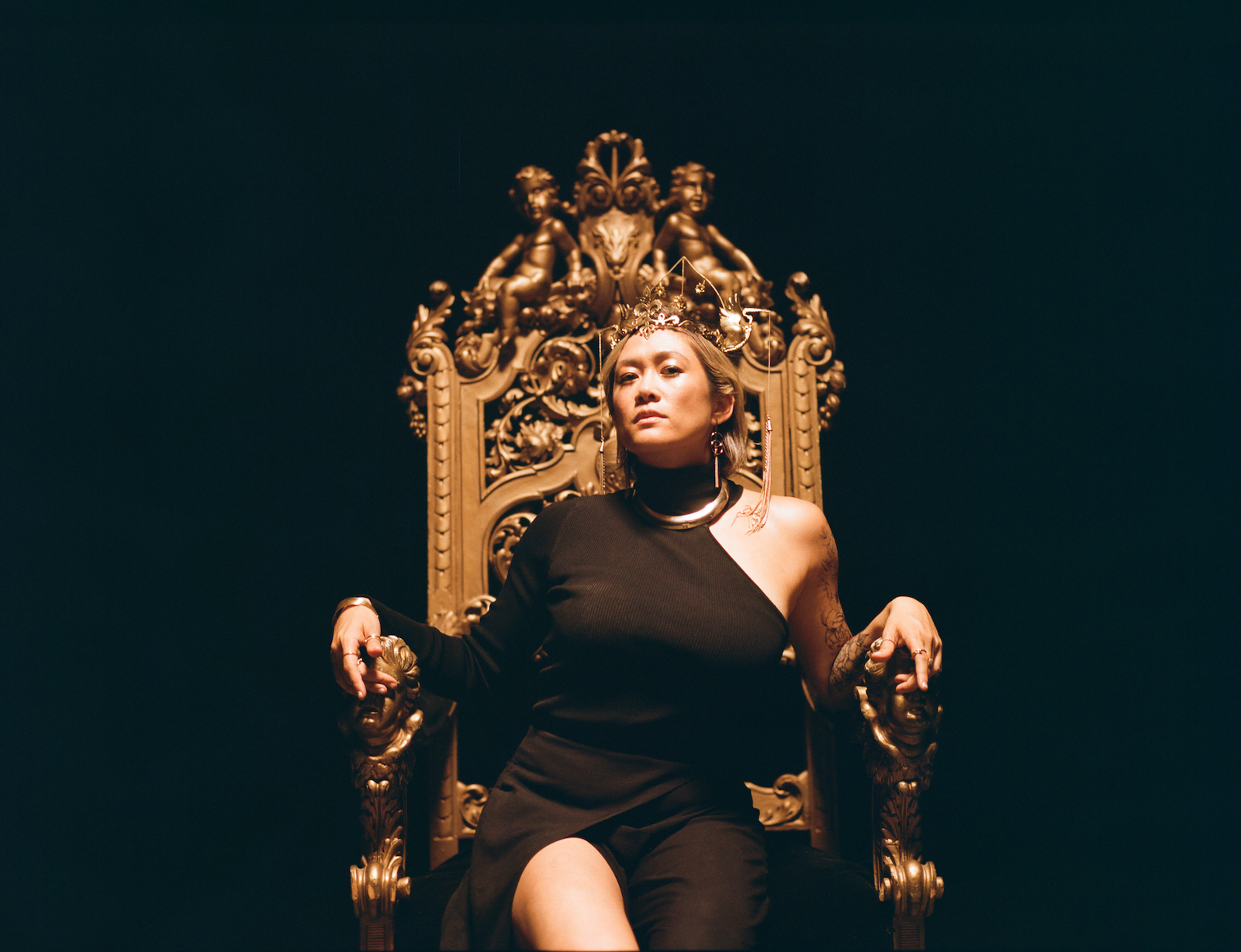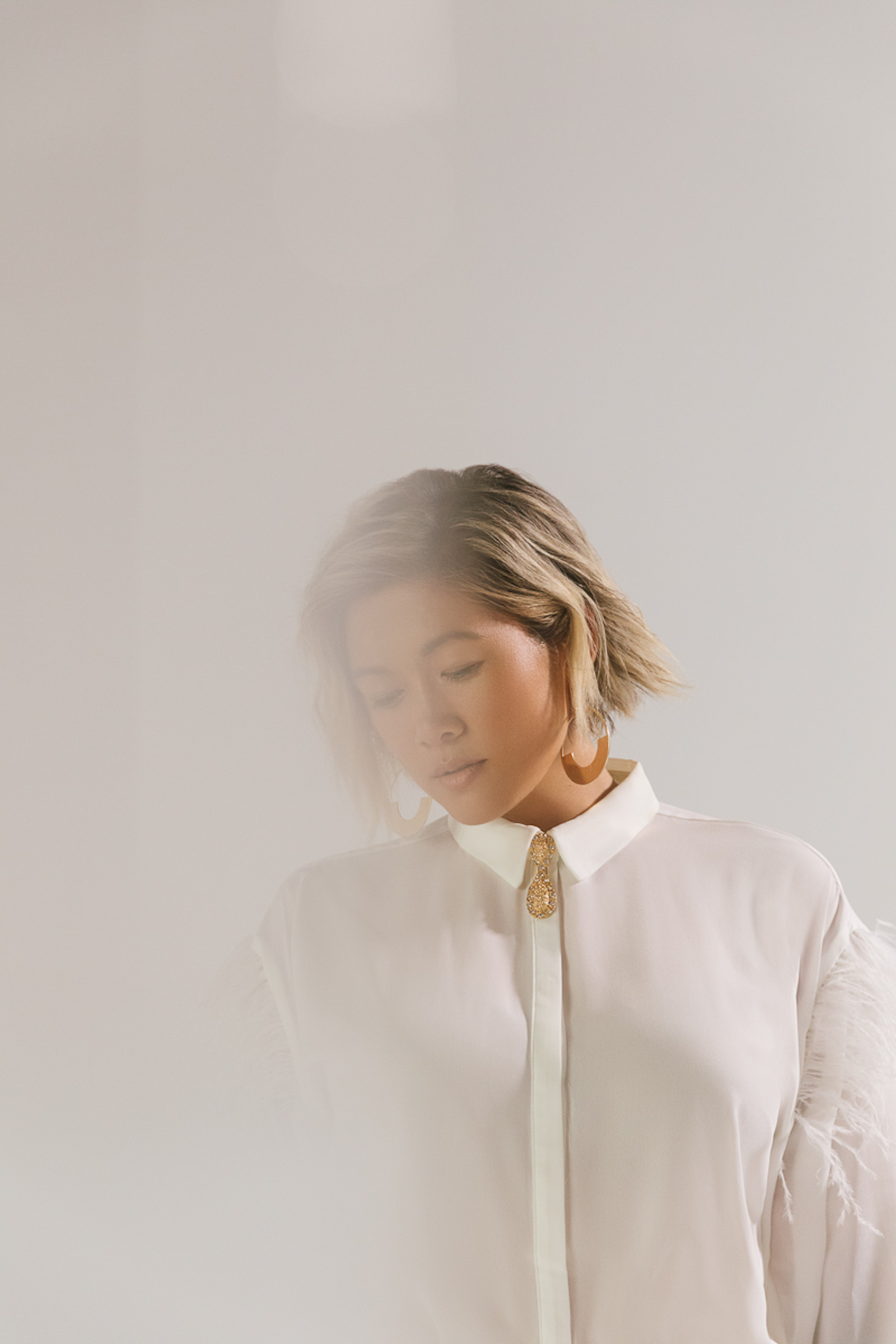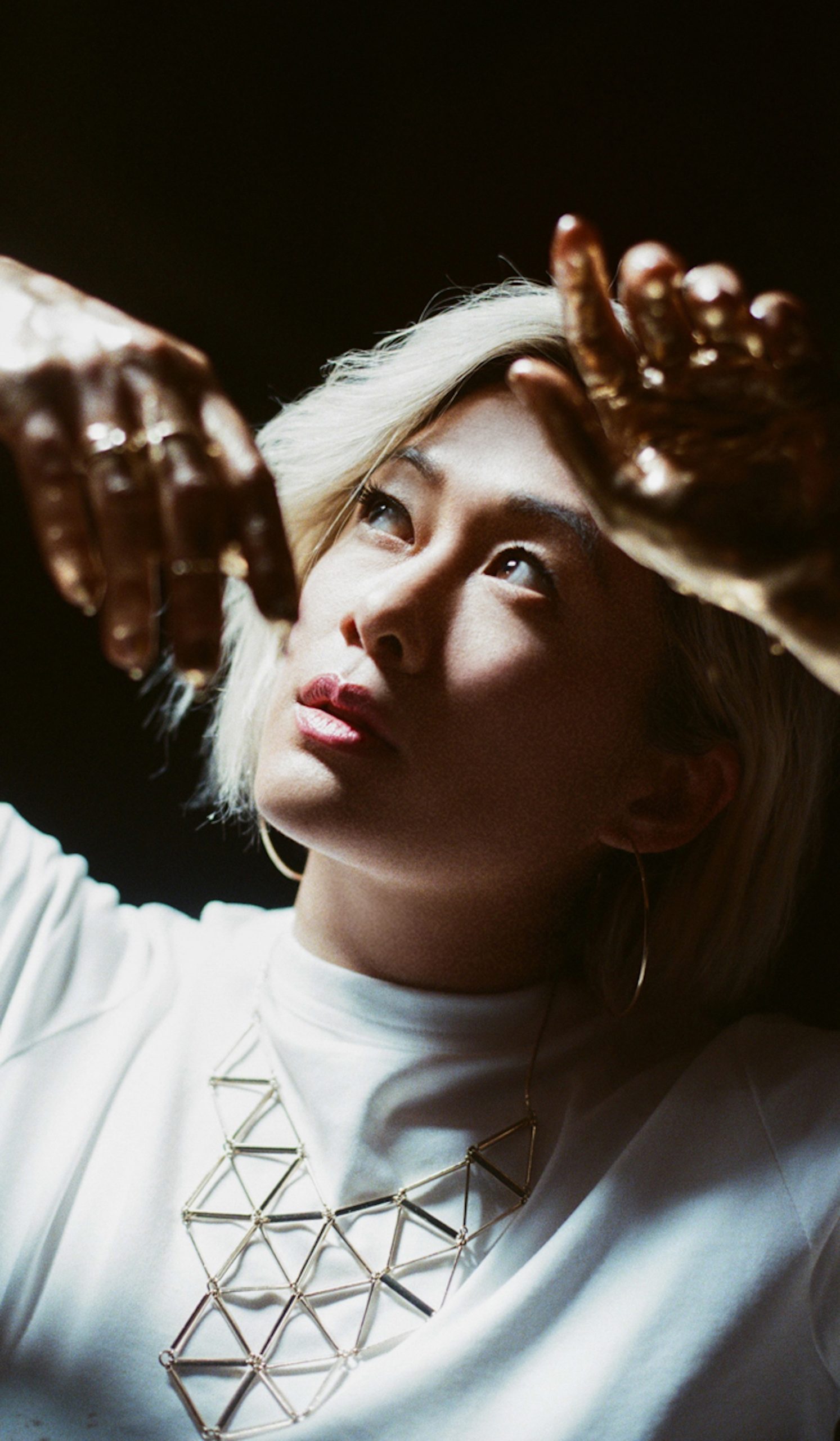
“Who run the world?” The arts.
Every year, the Oscars make headlines with the shocking take aways of the night: falls on the red carpet, excessive fabric, or the (for better or worse) memorable speeches that were given. Joaquin Phoenix was on everyone’s Instagram and Twitter feeds last Sunday as the preferred nominee for president, using his acceptance speech to highlight our commonalities and the ways in which humanity can rise above. It isn’t a stretch to say that the reality we live in might be a little broken, and every effort to brighten our perspectives and empower one another counts. Maybe it’s time to let optimism take over the headlines.
That’s where MILCK comes in. With a voice that is impassioned, raw, and inviting, the songwriter turned activist has been on a mission toward enlightened connection, writing songs for peace that actually have made headlines. Today, the anonymous queen premieres the visuals for her latest anthem, ‘If I Ruled The World,’ exclusively on LadyGunn. Enjoy below:
“All the sexist, racist bandits would be sent off for rehab, and instead of feeding fear, we’d be feeding half the planet, damnit.”

‘If I Ruled The World’ is jovial with a gospel, chanting rhythm that grows on your heart with every beat. The song is full of imagery both buoyant and imperative, and the video serves symbolism at every turn. ‘If I Rule The World’ is video number 5 of 5: the culmination of a five part video series that she’s releasing backwards. Yes, backwards.
“It’s a journey of me leaving a relationship I was in, actually. I ended up leaving because I felt like there was something missing in me that wasn’t there yet, so I had to step into the unknown. I’ve learned to love myself again, and that I have the ability to go from utter heartbreak to survival.”
MILCK chronicles her path of growth in this series, a heroine’s journey of fear and success. From where we’re standing, it’s a triumph.

MILCK spoke with LadyGunn about the moments that changed her career and her life. The leading lady behind these powerful songs is a California native, growing up in an upper-middle class town called Palos Verdes. She was raised in a conservative home with her parents, who immigrated from Hong Kong and worked their way from the ground up. When she went to school in Berkeley, her world opened up.
“I loved Berkeley, it was so different. I knew I loved the place when I saw these, like, old women with really long grey hair selling turquoise rings on the street; I was like “Ok, this is more my vibe.’
“I was able to live a really privileged life in Palos Verdes but during my childhood I experienced this intersection of a couple of things that resulted in a sort of bottled-up effect of trauma. How do I say this without generalizing? With some traditional families, the language [that deals] with sexual abuse is not developed, and a so a lot of that language actually turns into slut-shaming instead.
“What was the victim wearing? “what was she saying?” you know, “she asked for it.” When I was 14 I was sexually abused in a relationship and I didn’t quite understand what was happening…so when I asked for help, the narrative became that “I attracted trouble” and I was kind of “asking for it.” The great thing about the #MeToo movement is that it’s empowering young girls, and empowering them to understand how to communicate.
“I grew up for the next 12 years thinking that it was my fault and that there was something wrong with me, so it turned into addiction to food or to relationships or to partying, like a way of numbing the pain. I didn’t quite know what I was running from until I started going to therapy and that whole narrative of me being bad got flipped: perhaps it wasn’t my fault, perhaps I deserve do good things in my life. That’s when I realized I wanted to perform under the name “MILCK”, which Is my last name backwards and my first 2 initials.
MILCK’s given name is Connie Kimberly Lim. This moniker became a way to honor herself and her identity, something so many of us forget to do. Maybe representation has something to do with it. Who run the world?
“There are very few Asian-American recording artists in America so when I was starting, I had potential music managers saying ‘Look, we don’t know how to break Chinese-American Artists, you might need to go back to China.” and I was like…[laughter]”
I asked her about her colossal song, ‘Quiet,’ the one that went viral on several social media platforms and entirely sky-rocketed her to overnight fame.
“When Trump got elected I was, one: shocked and two: the language that he used to refer to women was absolutely unacceptable. For him to get elected shows this disregard for women; I was livid at the time. I didn’t want to give him the power and release that song in response to him, but I was like, “there’s something about this song that feels the same way that I feel when thinking about all this stuff that’s going on in our mainstream American media.”
MILCK sat on the song for a year. She still didn’t quite know how to launch it, how to express it in the right way: until she got to the women’s march.
“That’s what I’m gonna do! I’m gonna honor the women’s march. I’ll be in [Washington] D.C. And I’m gonna sing this song.”
And she did. But she didn’t sing it alone.
“One of My favorite things about music is vocal harmonies. Singing with a choir or singing with people, the vibrations of the human voice are so healing. I remember being in high school, going through the abuse…I leaned on music. I remember standing in rooms with 9 other women and we would sing like Barbershop songs and it would just clean my energy and I’d just feel totally refreshed.”
MILCK wrote a seven-part harmony for ‘Quiet,’ with every member singing every word. She did try to get her hometown singers to hop on a plane to D.C. but that didn’t quite work out. Instead, she went from stranger to stranger and said “I’m making a choir!”
“All these 25 women said yes. I emailed all sheet music I wrote and recorded it quite separately to them so it’d be easier to learn, Then I Skyped with them in my car. We all met on the day of the march, and I was a little nervous, thinking “What the heck am I doing? I’m this indie artist that’s flying across the country to sing this song that’s so personal with 25 strangers – that could be a disaster!” but when we started singing together I remember distinctly thinking “This is my purpose in life.” It was this magical trip for me, I almost cried!”
MILCK and her troops had applied to perform on the stage, but to no avail. Getting a response was nearly impossible, so they began flash mobbing. They sang ‘Quiet’ together on the street.
“People would pull out their phones. We took a picture with a woman who filmed us named Alma Har’el; she posted the video on her facebook and twitter, and I think it got like 9 million views there, and the cumulative of the two accounts was like 14 million views in two days.”
MILCK’s life changed that day. She later found herself at another Woman’s March on stage with Yoko Ono. As she sang her song ‘Quiet’, Yoko held up a sign that said ‘Imagine Peace.’ Worlds were coming together; hope had been sparked.
“For me Yoko Ono is like a big symbol because she’s also an Asian-American woman, and she actually was really heavy-handed in writing “Imagine” with John Lennon and when the song came out, she didn’t have any credits but then as John matured, he was able to say he let his ego got in the way. He ended up giving her writing credits.
“As an Asian woman, I see that she was a big voice that perhaps was not recognized as what she really was. I look now to Amanda Nguyen, the Nobel Peace Price nominee last year for her drafting and passing of over 25 bills for sexual assault for survivors. Seeing there’s a community of Asian-American women who are really calling for peace and I do see myself as part of that movement.”
CONNECT WITH MILCK
story / Ariana Tibi
